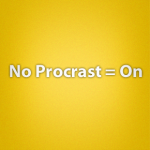Welcome to The Startup Foundry.
The Netflix price increase, the “Startup Playbook”, and my own hypocrisy
Paul Hontz
TSFPublished: Jul 21, 2011 1:45 am

Last week Netflix announced that they were increasing their prices in September. A very vocal customer base took to the internet to share its displeasure with the news. Some revolting customers even threatened to cancel their subscription unless the price increase was reversed. People were simply furious at Netflix.
“It’s ridiculous” I half-heartedly complained to a friend over lunch. “Netflix is essentially removing features and then making me pay to get them back. This whole pricing fiasco feels like they are just running an experiment on us”.
He responded “Isn’t that exactly what you teach startups to do?”. As I briefly choked on my sandwich he continued, “It’s in the Startup Playbook, right?”.
The “Startup Playbook”
My friend was referring to a common theme in startup circles: Charge more for your product. Heck, a few months ago I wrote “The audacity of charging from day one.”. The crux of my argument was to charge users early and figure out what works. Chances are you’re not going to get pricing right the first time, so experimentation is key to learning. Netflix is simply running an experiment on us by increasing their monthly fee. They might lose some customers, but overall their profits are going to skyrocket. I don’t believe their price points are perfect, but they will keep experimenting until they are.
The second reason Netflix increased their subscription fee is a bit convoluted.
Netflix has seen massive success. So much success, in fact, that the studios are getting jealous. Netflix is under immense pressure from the studios to pay more royalties and that is surely eating away at Netflix’s bottom line. Netflix is just trying to play the best it can with the cards it’s dealt. If the studios want more money, Netflix has to pass the buck.
Why the hypocrisy?
I’ve been wrestling with this for a few days and I’ve finally come to a realization: When we perceive “loss” it has a higher mental taxation. The backlash against Netflix wouldn’t have been nearly as intense if they kept the same features while increasing the price. The fact that you’d lose a feature and have to pay to get it back rubbed people the wrong way and had people grabbing their digital pitchforks.
It might make logical sense to try and split the streaming services from the DVD by mail, but humans aren’t logical creatures. For example: How many of us buy a $3 cup of coffee from Starbucks everyday yet we give pause when we’re looking at a $.99 app for our smartphones? “What if this app sucks? I’ll be down a buck and every time I see it’s icon I’ll feel stupid for buying it”. Perceived loss is a powerful feeling that can easily distort perspective.
Closing perspective
Netflix lets users watch (almost) any movie they want, whenever they want and is significantly cheaper than cable. Frankly, I find this to be incredible. I’ve decided that it’s worth it to me and I’ll be keeping it. I suspect many of the people threatening to cancel their subscriptions will ultimately come to the same realization.
-
👉 Filed Under.
Categorised in: Strategy
Get Connected:
If you like startups, join our weekly mailing list. Good startup content, no fluff.
👇

Hi, I'm Paul Hontz.
I'm a YC alumn and I love startups. I created TSF to highlight companies I find interesting. You can learn more about me here.
Recent Posts:

The Story of Cruise (YC W14): How 4 people built a self driving car in 7 months.
Jul 8, 2014 2:35 pm

I Want To Write About Your Startup – Relaunching TSF
Jan 17, 2014 5:14 pm

How To Do B2B Email Sales
Nov 23, 2011 2:12 pm

Nasty Bug in iOS 5.0.1 OTA Update screws up Address Book on the iPhone 4S
Nov 10, 2011 11:56 pm

It’s Easier to Answer to Your Code Than Your Customers
Oct 28, 2011 2:25 pm


